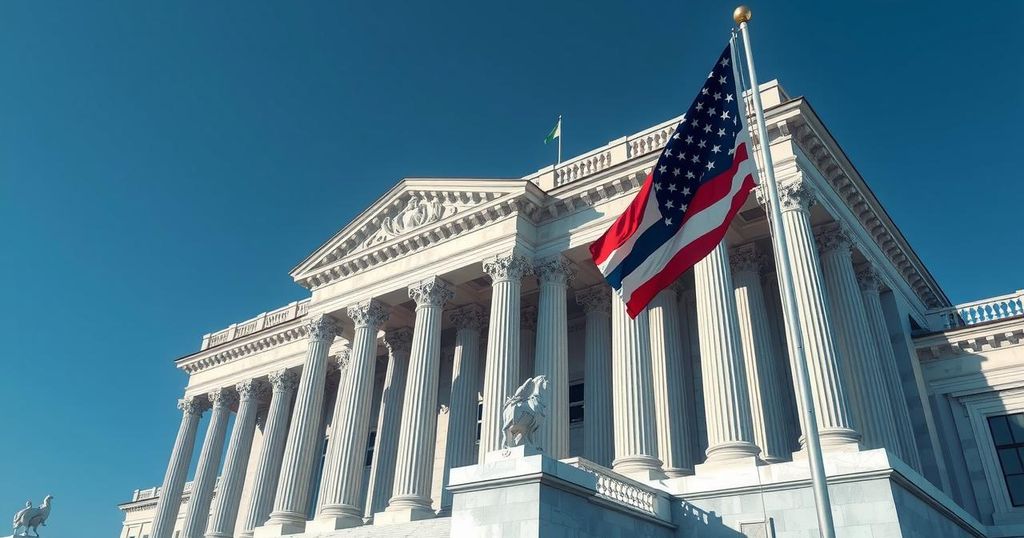Controversy Over Deportation of Lebanese Doctor Rasha Alawieh by DHS

The White House caused a stir by sharing a post about Dr. Rasha Alawieh’s deportation, which raised issues over her ties to Hezbollah and the legality of her removal. This incident illustrates broader concerns regarding immigration enforcement and national security regulations. Alawieh’s legal team is pursuing a case to reinstate her status in the U.S.
The White House drew considerable attention when it reshared a post from the Department of Homeland Security (DHS) regarding the deportation of Dr. Rasha Alawieh. The post featured a photo of former President Trump waving and included the phrase “bye-bye Rasha.” Dr. Alawieh, a kidney transplant specialist, was deported after allegedly having ties to Hezbollah, leading to significant controversy surrounding her case.
Dr. Alawieh was detained at Boston Logan International Airport after returning from Lebanon, where she attended the funeral of Hezbollah leader Hassan Nasrallah. Authorities claimed she acknowledged this and had previously stored images of Nasrallah and Hezbollah fighters on her phone, which she deleted post-arrest. DHS emphasized that endorsing terrorism could result in visa denial, labeling it as a measure of “commonsense security.”
At 34, Alawieh held an H-1B visa, allowing her to work as an assistant professor of medicine at Brown University. Her deportation ignited legal discussions since a federal judge had ruled she could not be removed without notice. However, officials claimed they received the necessary notification too late, resulting in her immediate deportation before the hearing.
Alawieh’s lawyer, Stephanie Marzouk, expressed determination to continue the legal struggle to reinstate Alawieh in the U.S., insisting, “We will not stop fighting to get Dr. Alawieh back to the US to see her patients where she should be.” Alawieh reportedly clarified that her interest in Nasrallah was for spiritual reasons, not political, explaining that she deleted the photos to avoid negative perceptions: “Because I didn’t want the perception. But I know I’m not doing anything wrong.”
This incident underscores a broader and intensified focus on visa holders linked with extremist affiliations, amidst recent arrests and visa revocations affecting individuals associated with such claims, as highlighted by recent cases involving a Palestinian activist at Columbia University.
Dr. Rasha Alawieh’s deportation highlights significant legal and ethical issues regarding national security protocols and immigration laws. The case has raised questions about due process, particularly with conflicting information regarding judicial orders. Legal experts are keeping a close watch on the developments as her defense team seeks to challenge her removal, a matter that mirrors ongoing concerns about visa policies affecting individuals with alleged extremist connections.
Original Source: www.indiatoday.in







